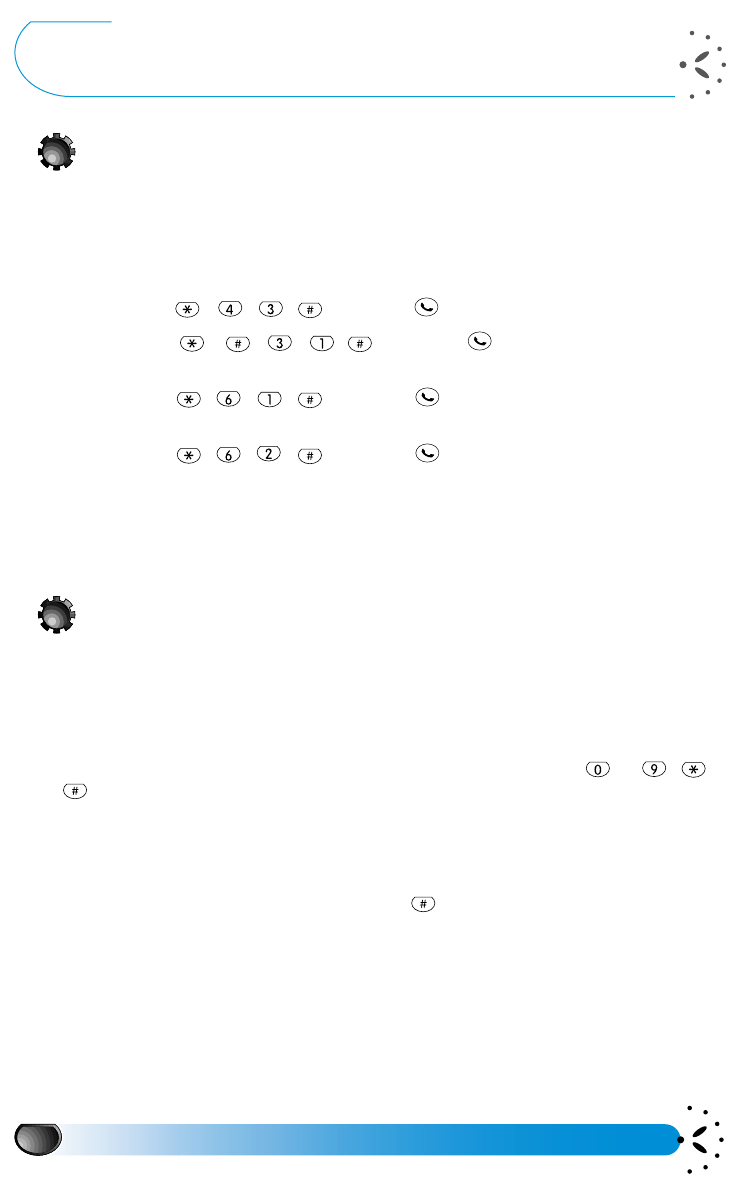
Use of network services
46
Use of network services
Additional GSM network services
(GSM strings)
The phone supports standard GSM strings. These can be sent from the keypad to the network.
They are used to activate all supplementary services provided by the network (see your service
provider).
Example n° 1: press then press , to activate the Call Waiting service.
Example n° 2: press
then press , to know if the mobile
identification has been sent.
Example n° 3: press then press , to activate the feature call forward
if no reply.
Example n° 4: press then press , to activate the feature call forward
if unreachable.
Please contact your network operator for any further information on GSM strings.
Query a voice server, a voice mailbox, a
messaging service, etc. (DTMF tones)
Some phone services (such as phone answering machines and pagers) require your phone to
transmit DTMF tones (Dual Tone MultiFrequency), also known as “touch tones”. These are
used to communicate passwords, callback numbers, caller choices, and so on.
You can send DTMF tones at any time during a call by pressing any of the keys to ,
and .
You can also append a DTMF sequence to a phone number before dialling it (or storing it in the
Names list). The phone number and the DTMF part must be separated by a wait character.
Pause and wait characters
To obtain a pause or wait character, press and hold . The display shows
w
for a wait and
p
for a pause. The phone always interprets the first pause character as a wait character.
When you dial a number containing a wait character, your phone dials the first part (the phone
number) and then waits for the call to be connected before sending the rest of the digits as
DTMF tones.
Any subsequent pause character is an ordinary pause that generates a delay of 2.5 seconds.


















